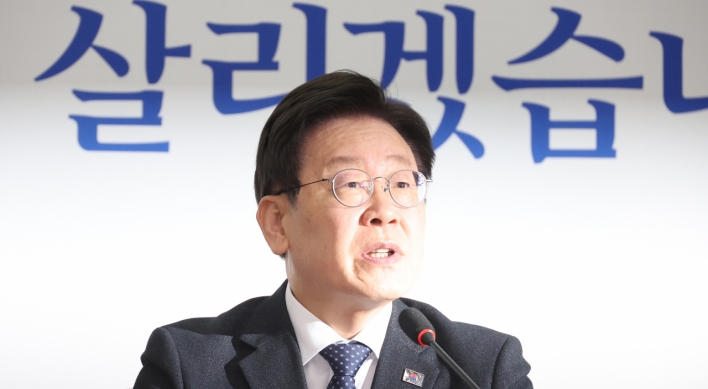The Constitutional Court on Thursday struck down South Korea’s controversial adultery law, ending a decadeslong debate.
In a 7-2 decision, the court ruled that the anticheating law breaches the individual’s sexual rights and privacy, and thereby violates the Constitution. Six votes were needed to overturn the law.
Under the law, adultery was a crime punishable by up to two years behind bars. Any third person involved in a love affair could also face criminal charges. The regulation was only applicable when a spouse filed a lawsuit.
In a 7-2 decision, the court ruled that the anticheating law breaches the individual’s sexual rights and privacy, and thereby violates the Constitution. Six votes were needed to overturn the law.
Under the law, adultery was a crime punishable by up to two years behind bars. Any third person involved in a love affair could also face criminal charges. The regulation was only applicable when a spouse filed a lawsuit.

“The public perception toward the anticheating law does not reach consensus anymore. Whether to sustain a marriage should depend on people’s free will and choices,” the majority of the judges said.
“Considering the level of social criticism (of the adultery law), it has become difficult to bring about the intended precautionary effects. In fact, it has rather been used as a means of divorce for those who committed more faults (than their partners) yet wished to break up, and a means of blackmailing erratic housewives.”
The two dissenting judges viewed the matter differently.
“Adultery is an act that damages the marriage-based social system and has a destructive impact on families. Therefore, it is not included in the realm of the individual’s sexual rights,” the minority said, including a left-leaning female judge.
“The abolishment of the adultery law can lower the level of sexual morality (in society), and thereby accelerate the dissolution of the family system,” they added.
In the past, the court had turned down petitions to repeal the law four times from 1990 to 2008. In its 2008 ruling, the majority of the judges supported personal freedom but were one vote shy of ordering a change.
Since the enactment of the adultery law in 1953, there has been a national debate over its legality. While some claimed that the law was necessary to protect family values and to keep the legacy of traditionally long-revered Confucian values, others argued that it breached privacy rights.
Public requests to abolish the law have mounted as the law was sometimes used to exact personal revenge or secure more alimony. It also tended to put women at an unfair disadvantage due to social prejudice.
The court’s landmark ruling is expected to affect thousands of people who have been punished so far.
While about 100,000 people were punished by the controversial law since 1953, the severity of the punishments have gradually declined.
Among those, only some 5,400 people ― those who were indicted on charges of violating the adultery law since Oct. 31, 2008 ― are expected to be allowed a retrial.
The judiciary authorities allow a retrial request from only those who faced charges a day after the last constitutional ruling on the same topic was announced. The last ruling in favor of the adultery law was upheld on Oct. 30, 2008.
The main opposition New Politics Alliance for Democracy hailed the court’s decision, saying that it reflected social changes. The ruling Saenuri Party stressed that the marriage and family system should still be respected.
By Lee Hyun-jeong (rene@heraldcorp.com)









![[Hello India] Hyundai Motor vows to boost 'clean mobility' in India](http://res.heraldm.com/phpwas/restmb_idxmake.php?idx=644&simg=/content/image/2024/04/25/20240425050672_0.jpg&u=)








